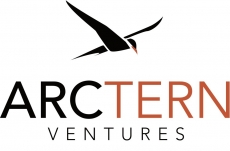

ArcTern Ventures

Ontario, Canada
June 2013
Equity investing - Developed Markets
Service with Minor Environmental Footprint
Canada,
Norway,
United States
ArcTern Ventures is a venture capital firm committed to addressing the climate crisis and advancing sustainability. Headquartered in Toronto, with offices in Oslo and San Francisco, we invest globally in innovative technology companies focused on climate action and sustainability—what we call Earthtech. We believe that accelerating the transition to a carbon-neutral economy can disrupt industries and create substantial financial returns, benefiting companies, investors, and the planet. ArcTern launched its first fund, MaRS Cleantech Fund I L.P., in 2012 with US$22M in commitments, followed by another US$34M for follow-on investments. This fund backed 10 Pre-Seed and Seed startups in Canada. Building on this foundation, Fund II closed in 2019 with US$146M from leading institutional investors and has made 18 investments, expanding our focus to Series A and B startups in North America and Europe. Our latest fund, Fund III, closed in January 2024 with US$337M, and we have already invested in 8 Series A and B startups across these regions. Our investment strategy is aligned with the Paris Agreement, prioritizing companies that can significantly reduce greenhouse gas emissions. We target high-impact sectors including Electricity and Energy, Industry, Transportation/Mobility, Food Sys
Overall B Impact Score
Governance 15.6
Governance evaluates a company's overall mission, engagement around its social/environmental impact, ethics, and transparency. This section also evaluates the ability of a company to protect their mission and formally consider stakeholders in decision making through their corporate structure (e.g. benefit corporation) or corporate governing documents.
What is this? A company with an Impact Business Model is intentionally designed to create a specific positive outcome for one of its stakeholders - such as workers, community, environment, or customers.
Workers 29.6
Workers evaluates a company’s contributions to its employees’ financial security, health & safety, wellness, career development, and engagement & satisfaction. In addition, this section recognizes business models designed to benefit workers, such as companies that are at least 40% owned by non-executive employees and those that have workforce development programs to support individuals with barriers to employment.
Community 11.7
Community evaluates a company’s engagement with and impact on the communities in which it operates, hires from, and sources from. Topics include diversity, equity & inclusion, economic impact, civic engagement, charitable giving, and supply chain management. In addition, this section recognizes business models that are designed to address specific community-oriented problems, such as poverty alleviation through fair trade sourcing or distribution via microenterprises, producer cooperative models, locally focused economic development, and formal charitable giving commitments.
What is this? A company with an Impact Business Model is intentionally designed to create a specific positive outcome for one of its stakeholders - such as workers, community, environment, or customers.
Environment 9.5
Environment evaluates a company’s overall environmental management practices as well as its impact on the air, climate, water, land, and biodiversity. This includes the direct impact of a company’s operations and, when applicable its supply chain and distribution channels. This section also recognizes companies with environmentally innovative production processes and those that sell products or services that have a positive environmental impact. Some examples might include products and services that create renewable energy, reduce consumption or waste, conserve land or wildlife, provide less toxic alternatives to the market, or educate people about environmental problems.
Customers 34.4
Customers evaluates a company’s stewardship of its customers through the quality of its products and services, ethical marketing, data privacy and security, and feedback channels. In addition, this section recognizes products or services that are designed to address a particular social problem for or through its customers, such as health or educational products, arts & media products, serving underserved customers/clients, and services that improve the social impact of other businesses or organizations.
What is this? A company with an Impact Business Model is intentionally designed to create a specific positive outcome for one of its stakeholders - such as workers, community, environment, or customers.